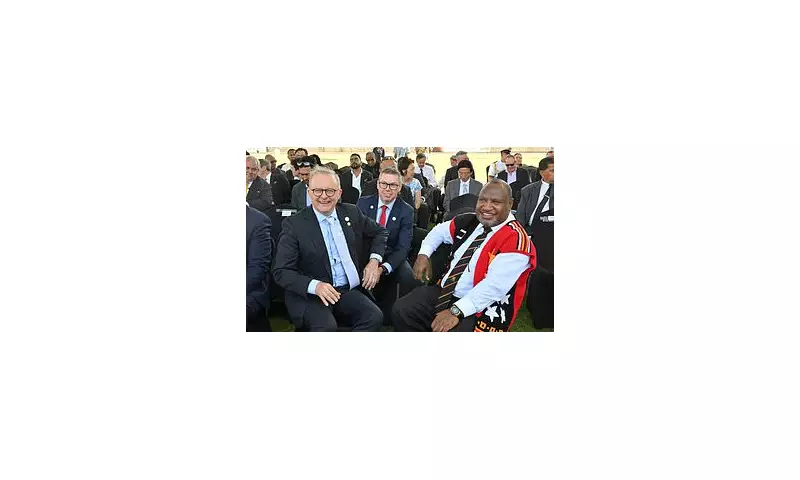
Australian Prime Minister Anthony Albanese's high-stakes diplomatic mission to Papua New Guinea has concluded without the signing of a pivotal security agreement, marking a substantial setback for Canberra's strategic ambitions in the Pacific region.
The anticipated treaty, which was a central objective of Albanese's visit, aimed to significantly deepen defence and security cooperation between the two nations. This initiative was widely seen as a crucial move to counter China's expanding influence in the strategically vital Pacific.
A Summit of Symbolism Over Substance
Despite the pomp and ceremony of a formal welcome ceremony in Port Moresby, the discussions between Albanese and his PNG counterpart, James Marape, failed to bridge the gaps necessary to finalise the agreement. The two leaders instead presided over the opening of a new police barracks, a gesture that underscored the relationship's potential but fell short of the comprehensive pact Australia had sought.
Reports indicate that the deal faltered due to unresolved complexities. PNG officials expressed concerns over sovereignty and the intricate details of the proposed agreement, preferring a more cautious approach to such a significant alignment.
The Shadow of China's Influence
The failure to secure the deal is a diplomatic blow for Australia, which has been actively working to reinforce its role as the primary security partner for its Pacific neighbours. This effort has gained urgency following China's security pact with the Solomon Islands in 2022, which sent shockwaves through Western capitals.
This unsuccessful negotiation will likely be perceived as a win for Beijing, which has been steadily building economic and military ties across the Pacific islands through its signature Belt and Road Initiative.
What's Next for Australian-Pacific Relations?
While both leaders have publicly committed to ongoing cooperation, the absence of a signed treaty raises questions about the future of Australia's Pacific step-up policy. The outcome suggests that Pacific nations are carefully weighing their options and are not automatically aligning with traditional partners, demanding agreements that respect their sovereignty and needs.
This development signals a more complex and competitive geopolitical landscape in the Pacific, where Australian diplomacy must now work harder to secure its interests and maintain its influence against an increasingly assertive China.





